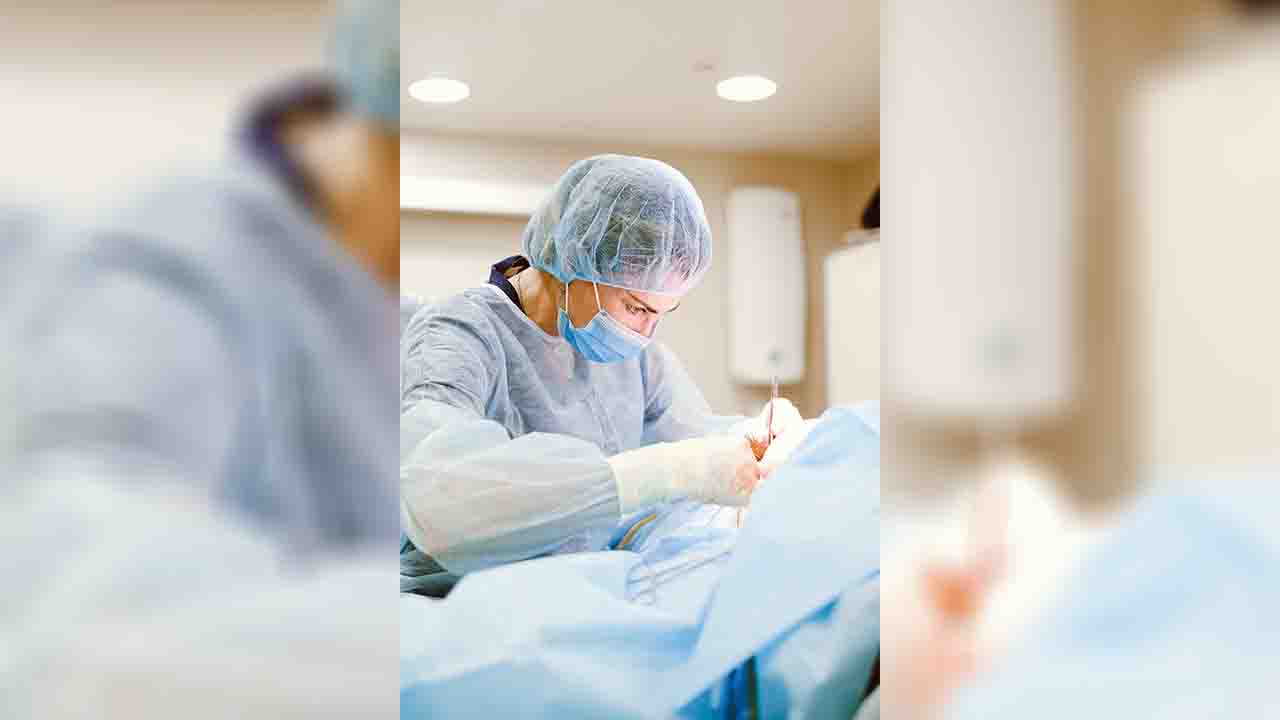Health UK (Commonwealth Union) – Research conducted at Cardiff University has unveiled the potential of utilizing an electric field technique known as electrostatic precipitation to significantly mitigate the aerosol transmission of viruses during surgical procedures, achieving an impressive efficiency rate of up to 99%. This breakthrough offers promising prospects for reducing viral spread in healthcare settings, thus addressing surgery backlogs that have arisen during the COVID-19 pandemic and preparing healthcare systems for future outbreaks.
During the pandemic, numerous surgeries were postponed or canceled to contain the transmission of COVID-19, leading to a substantial backlog of patients awaiting essential procedures across the globe as indicated in the study. Surgeries categorized as aerosol-generating, such as laparoscopy or tracheostomy, faced the highest risk of delay. Cardiff University’s latest research shines a light on the potential of electric fields, specifically electrostatic precipitation, as a robust solution to curbing viral transmission within surgical settings.
Hannah Preston, a researcher at Cardiff University School of Medicine, pointed out that while respiratory viruses can spread through physical contact, a significant mode of transmission occurs via the dispersion of aerosols from infected individuals. Actions as commonplace as talking, breathing, coughing, and sneezing can all generate aerosols. Additionally, the transmission of aerosols can take place during surgical procedures.
While measures like mask-wearing, personal protective equipment (PPE), social distancing, and isolating infected patients play essential roles in reducing infection spread, they primarily aim to minimize contact rather than directly eliminate the virus. Hospitals currently employ interventions like air filters, ultraviolet light sterilization, and aerosolized hydrogen peroxide sprays to limit viral transmission, but these methods have their limitations.
Preston further elaborated, that since viral transmission most frequently occurs through the release of aerosols from infected patients, it would be advantageous to develop a method capable of efficiently capturing and deactivating viral particles within aerosols within hospital environments. Electrostatic precipitation has been devised for use in minimally invasive surgeries. It employs an electric field to capture particles from aerosolized dispersion and render viruses inactive.
“Our research aimed to evaluate the effectiveness of electrostatic precipitation, investigating how efficiently this method captured and inactivated aerosolised viral particles during surgical procedures.”
This innovative approach offers a promising avenue to enhance surgical safety and reduce the risks associated with aerosol transmission of viruses. As healthcare systems worldwide strive to navigate the challenges posed by pandemics and surgery backlogs, research breakthroughs like this one from Cardiff University could prove instrumental in safeguarding patient health and well-being.
The research team constructed a model designed to simulate keyhole surgery conditions, complete with aerosolized viruses. This model was subjected to electrostatic precipitation as part of the experiment. Electrostatic precipitation was evaluated on two types of viruses: enveloped viruses, including SARS-CoV-2 responsible for COVID-19, and non-enveloped viruses like adenovirus and norovirus. Following exposure to electrostatic precipitation, the researchers assessed the presence and functionality of the viruses. Remarkably, the results showed that electrostatic precipitation achieved a remarkable 99% efficiency in deactivating the viruses, underscoring its potential as an effective countermeasure against viral transmission during surgical procedures.
“Although we are still recovering from the Covid-19 pandemic, scientists, policy-makers and healthcare systems are always preparing for the next pandemic. Therefore investment in research into tools that prevent viral spread are vital in preparing for the next pandemic our world will encounter,” said Hannah.
Professor Alan Parker of Cardiff University expressed optimism regarding these findings and their potential to restore normalcy to surgical procedures even in the face of future pandemics, ultimately bolstering the health and safety of countless individuals. The research paper, titled “Capture and Inactivation of Viral Particles from Bioaerosols by Electrostatic Precipitation,” was published in the journal iScience. This collaborative study brought together experts from Cardiff University’s School of Medicine, in conjunction with collaborators from the Medway School of Pharmacy at the University of Kent and Alesi Surgical Ltd.








